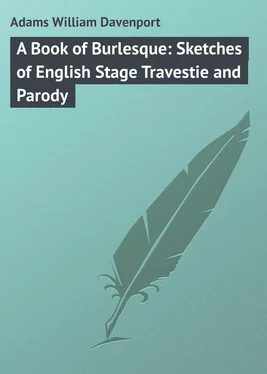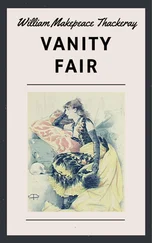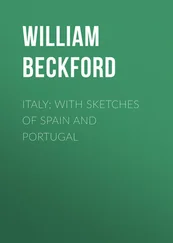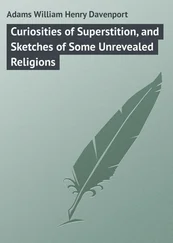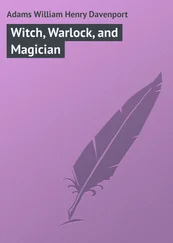William Adams - A Book of Burlesque - Sketches of English Stage Travestie and Parody
Здесь есть возможность читать онлайн «William Adams - A Book of Burlesque - Sketches of English Stage Travestie and Parody» — ознакомительный отрывок электронной книги совершенно бесплатно, а после прочтения отрывка купить полную версию. В некоторых случаях можно слушать аудио, скачать через торрент в формате fb2 и присутствует краткое содержание. ISBN: , Жанр: foreign_prose, на английском языке. Описание произведения, (предисловие) а так же отзывы посетителей доступны на портале библиотеки ЛибКат.
- Название:A Book of Burlesque: Sketches of English Stage Travestie and Parody
- Автор:
- Жанр:
- Год:неизвестен
- ISBN:http://www.gutenberg.org/ebooks/47150
- Рейтинг книги:5 / 5. Голосов: 1
-
Избранное:Добавить в избранное
- Отзывы:
-
Ваша оценка:
- 100
- 1
- 2
- 3
- 4
- 5
A Book of Burlesque: Sketches of English Stage Travestie and Parody: краткое содержание, описание и аннотация
Предлагаем к чтению аннотацию, описание, краткое содержание или предисловие (зависит от того, что написал сам автор книги «A Book of Burlesque: Sketches of English Stage Travestie and Parody»). Если вы не нашли необходимую информацию о книге — напишите в комментариях, мы постараемся отыскать её.
A Book of Burlesque: Sketches of English Stage Travestie and Parody — читать онлайн ознакомительный отрывок
Ниже представлен текст книги, разбитый по страницам. Система сохранения места последней прочитанной страницы, позволяет с удобством читать онлайн бесплатно книгу «A Book of Burlesque: Sketches of English Stage Travestie and Parody», без необходимости каждый раз заново искать на чём Вы остановились. Поставьте закладку, и сможете в любой момент перейти на страницу, на которой закончили чтение.
Интервал:
Закладка:
Cecilia. Your countenance grows animated, my dear madam.
Matilda. And yours is glowing with illumination.
Cecilia. I had long been looking out for a congenial spirit! My heart was withered, but the beams of yours have rekindled it.
Matilda. A sudden thought strikes me: let us swear an eternal friendship.
Cecilia. Let us agree to live together!
Matilda. Willingly.
Cecilia. Let us embrace.( They embrace. )
"The Rovers," however, would hardly come within the scope of the present volume, were it not that, in 1811, at the Haymarket, there was produced, by Colman junior, a piece called "The Quadrupeds of Quedlinburgh, or the Rovers of Weimar," in which the adapter made use of the squib in The Anti-Jacobin . Colman's aim in this work was to ridicule not only the German plays, including Kotzebue's "Spaniards in Peru" ("Pizarro"), which had lately been brought before the English playgoer, but also the prevailing fancy for bringing animals upon the stage. At Astley's horses had figured both in "Blue Beard" and in "Timour the Tartar," and dogs had previously been seen in "The Caravan." To this, as well as to the unhealthy importations from Germany, allusion was made in the prologue: —
To lull the soul by spurious strokes of art,
To warp the genius and mislead the heart,
To make mankind revere wives gone astray,
(a hit at "The Stranger"),
Love pious sons who rob on the highway,
For this the foreign muses trod our stage,
Commanding German schools to be the rage…
Your taste, recovered half from foreign quacks,
Takes airings now on English horses' backs;
While every modern bard may raise his name,
If not on lasting praise, on stable fame.
"The Quadrupeds of Quedlinburgh" was not printed, and one does not know to what extent Colman took advantage of the text of "The Rovers." It is certain, however, that Casimere, Matilda, and Cecilia, as well as Rogero (a creation of the original parodists), all appeared in the burlesque, being enacted respectively by Munden, Mrs. Glover, Mrs. Gibbs, and Liston, Elliston taking the rôle of Bartholomew Bathos, a lineal descendant (no doubt) of Bayes and Puff. We read that, in addition to the travestie supplied by The Anti-Jacobin , fun was poked at the sentimental sentinel in "Pizarro," and the last scene of "Timour the Tartar" was closely imitated. The piece was acted thirty-nine times, and must therefore have been what, in those days, was accounted a success.
We come now to a travestie of the old-fashioned tragedy which helps to connect the Old burlesque with the New, inasmuch as it was the production of James Robinson Planché. Of his "Amoroso, King of Little Britain: a serio-comick bombastick operatick interlude," played at Drury Lane in 1818, Planché was not particularly proud. He was very young when he wrote it; he wrote it for amateur performance; and it got on to the stage of Drury Lane without his knowledge and consent. Harley, the comedian, appears to have seen or read the little trifle, and to have recommended it to the manager of "the national theatre." He himself represented Amoroso; Knight was Roastando (a cook); Smith was Blusterbus (a yeoman of the guard); Mrs. Bland was Coquetinda (the Queen of Little Britain), and Mrs. Orger was Mollidusta (a chambermaid). The piece was much applauded, and had the distinction of being quoted in the Times . It opens with the King being awakened by his courtiers, to whom he angrily exclaims: —
Leave at what time you please your truckle beds —
But if you break my rest I'll break your heads.
I swear I'm quite disordered with this rout.
Ahem! My lords and gentlemen – get out!
The Times applied the last line to a Parliamentary incident which had just occurred; and Planché admits that he was flattered by the compliment. But he would not include "Amoroso" in the testimonial edition of his burlesques and extravaganzas, – mainly, I imagine, because the piece is so obviously an imitation of "Bombastes Furioso," which it by no means equals in literary distinction.
The plot is simplicity itself. Amoroso is in love with Mollidusta, Mollidusta with Blusterbus, and the Queen with Roastando. "The King sees Roastando and the Queen salute: he discharges Roastando. The Queen sees the King and Mollidusta together: she stabs Mollidusta. The King stabs the Queen, Roastando stabs the King, the King stabs Roastando." In the end, all come to life again. In the course of the play the King thus declares his passion to Mollidusta: —
When gooseberries grow on the stem of a daisy,
And plum-puddings roll on the tide to the shore,
And julep is made from the curls of a jazey,
Oh, then, Mollidusta, I'll love thee no more.
When steamboats no more on the Thames shall be going,
And a cast-iron bridge reach Vauxhall from the Nore,
And the Grand Junction waterworks cease to be flowing,
Oh, then, Mollidusta, I'll love thee no more.
Amoroso also sings the following pseudo-sentimental ditty: —
Love's like a mutton-chop,
Soon it grows cold,
All its attractions hop
Ere it grows old.
Love's like the colic sure,
Both painful to endure,
Brandy's for both a cure.
So I've been told!
When for some fair the swain
Burns with desire,
In Hymen's fatal chain
Eager to try her,
He weds soon as he can,
And jumps (unhappy man!)
Out of the frying-pan
Into the fire.
Not to be outdone by the other lovers, the Queen and Roastando warble a duet, in which they confess their feelings for each other: —
She. This morning I to Covent Garden went,
To purchase cabbages was my intent,
But, my thoughts dwelling on Roastando's looks,
Instead of cabbages I asked for cooks!
He. Last night, neglecting fricassés for stews,
On Coquetinda's charms I paused to muse,
And, 'stead of charcoal, did my man desire
To put some Coquetinda on the fire.
Three months after "Amoroso" had been seen at Drury Lane, there was produced at the English Opera House a "serio-comic-bombastic-operatic interlude," written by George Daniel, and called "Doctor Bolus" – yet another burlesque of the old-fashioned drama, owing quite as much to "Bombastes Furioso" as did "Amoroso." In this piece the King, Artipadiades (Harley), is in love with Poggylina, a maid of honour, while the Queen, Katalinda (Miss Kelly), is enamoured of General Scaramoucho (Chatterley). The General revolts, and is defeated by the King. His amour is discovered, and, while the Queen is poisoned with one of Bolus's "infallible" pills, the General is stabbed by Artipadiades. The Queen, however, revives, and is thereupon stabbed by the King, who also stabs himself. But, in the end, as in "Amoroso," all the dead people are resuscitated. There are some gleams of humour in the dialogue, but not many. Bolus was played by John Wilkinson.
II
THE "PALMY" DAYS
After the production of "Amoroso," Planché remained silent, so far as travestie was concerned, till 1831, when he began in earnest his successful career as a burlesque writer. In the interval a new votary of travestie appeared in the person of Fox Cooper, of whose "Elbow Shakers" and "Ion" I shall have something to say by-and-by. Moncrieff and Buckstone, too, followed the example of T. Dibdin, in dealing more or less humorously with the subject of "Don Giovanni," while Buckstone also essayed to do the same with that of "Billy Taylor." None of these effusions, however, were burlesques in the ordinary acceptation of the word; and 1831, therefore, may still be taken as the starting-point of the new theatrical era, of which Planché was the herald.
Читать дальшеИнтервал:
Закладка:
Похожие книги на «A Book of Burlesque: Sketches of English Stage Travestie and Parody»
Представляем Вашему вниманию похожие книги на «A Book of Burlesque: Sketches of English Stage Travestie and Parody» списком для выбора. Мы отобрали схожую по названию и смыслу литературу в надежде предоставить читателям больше вариантов отыскать новые, интересные, ещё непрочитанные произведения.
Обсуждение, отзывы о книге «A Book of Burlesque: Sketches of English Stage Travestie and Parody» и просто собственные мнения читателей. Оставьте ваши комментарии, напишите, что Вы думаете о произведении, его смысле или главных героях. Укажите что конкретно понравилось, а что нет, и почему Вы так считаете.
